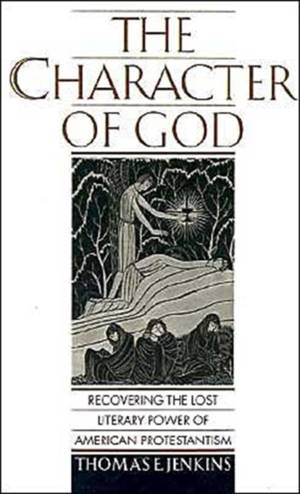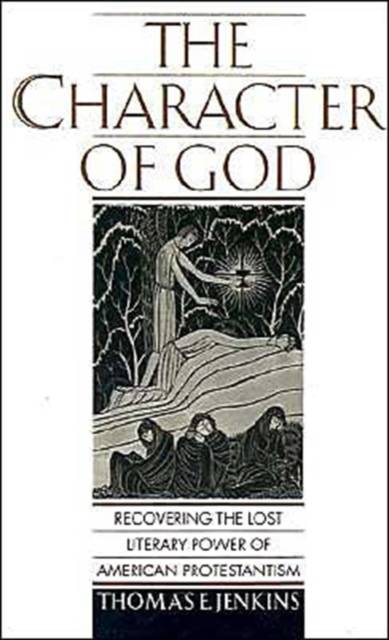
- Retrait gratuit dans votre magasin Club
- 7.000.000 titres dans notre catalogue
- Payer en toute sécurité
- Toujours un magasin près de chez vous
- Retrait gratuit dans votre magasin Club
- 7.000.0000 titres dans notre catalogue
- Payer en toute sécurité
- Toujours un magasin près de chez vous
61,45 €
+ 122 points
Description
Educated people have become bereft of sophisticated ways to develop their religious inclinations. A major reason for this is that theology has become vague and dull. In The Character of God, author Thomas E. Jenkins maintains that Protestant theology became boring by the late nineteenth century because the depictions of God as a character in theology became boring. He shows how in the early nineteenth century, American Protestant theologians downplayed biblical depictions of God's emotional complexity and refashioned his character according to their own notions, stressing emotional singularity. These notions came from many sources, but the major influences were the neoclassical and sentimental literary styles of characterization dominant at the time. The serene benevolence of neoclassicism and the tender sympathy of sentimentalism may have made God appealing in the mid-1800s, but by the end of the century, these styles had lost much of their cultural power and increasingly came to seem flat and vague. Despite this, both liberal and conservative theologians clung to these characterizations of God throughout the twentieth century.
Jenkins argues that a way out of this impasse can be found in romanticism, the literary style of characterization that supplanted neoclassicism and sentimentalism and dominated American literary culture throughout the twentieth century. Romanticism emphasized emotional complexity and resonated with biblical depictions of God. A few maverick religious writers-- such as Harriet Beecher Stowe, W. G. T. Shedd, and Horace Bushnell--did devise emotionally complex characterizations of God and in some cases drew directly from romanticism. But their strange and sometimes shocking depictions of God were largely forgotten in the twentieth century. s use "theological" as a pejorative term, implying that an argument is needlessly Jenkins urges a reassessment of their work and a greaterin understanding of the relationship between theology and literature. Recovering the lost literary power of American Protestantism, he claims, will make the character of God more compelling and help modern readers appreciate the peculiar power of the biblical characterization of God.
Jenkins argues that a way out of this impasse can be found in romanticism, the literary style of characterization that supplanted neoclassicism and sentimentalism and dominated American literary culture throughout the twentieth century. Romanticism emphasized emotional complexity and resonated with biblical depictions of God. A few maverick religious writers-- such as Harriet Beecher Stowe, W. G. T. Shedd, and Horace Bushnell--did devise emotionally complex characterizations of God and in some cases drew directly from romanticism. But their strange and sometimes shocking depictions of God were largely forgotten in the twentieth century. s use "theological" as a pejorative term, implying that an argument is needlessly Jenkins urges a reassessment of their work and a greaterin understanding of the relationship between theology and literature. Recovering the lost literary power of American Protestantism, he claims, will make the character of God more compelling and help modern readers appreciate the peculiar power of the biblical characterization of God.
Spécifications
Parties prenantes
- Auteur(s) :
- Editeur:
Contenu
- Nombre de pages :
- 288
- Langue:
- Anglais
- Collection :
Caractéristiques
- EAN:
- 9780195112023
- Date de parution :
- 04-12-97
- Format:
- Livre relié
- Format numérique:
- Genaaid
- Dimensions :
- 160 mm x 236 mm
- Poids :
- 553 g

Les avis
Nous publions uniquement les avis qui respectent les conditions requises. Consultez nos conditions pour les avis.






